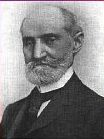China officinalis For stout, swarthy persons; for systems, once robust, which have become debilitated, “broken down” from exhausting discharges ( Carbo vegetabilis ).
Apathetic, indifferent, taciturn ( Phosphorus ac. ); despondent, gloomy, has no desire to live, but lacks courage to commit suicide.
Ailments: from loss of vital fluids, especially haemorrhages, excessive lactation, diarrhoea, suppuration ([China s.]); of malarial origin, with marked periodicity; return every other day.
After climacteric with profuse haemorrhages; acute diseases often result in dropsy.
China officinalis Pains: drawing or tearing; in every joint, all the bones. Periosteum, as if strained, sore all over; obliged to move limbs frequently, as motion gives relief; renewed by contact, and then gradually increase to a great height.
China officinalis Headache: as if the skull would burst; intense throbbing of head and carotids, face flushed; from occiput over whole head; < sitting or lying, must stand or walk; after haemorrhage or sexual excesses.
Face pale, hippocratic; eyes sunken and surrounded by blue margins; pale, sickly expression as after excesses; toothache while nursing the child.
Excessive flatulence of stomach and bowels; fermentation, borborygmus, belching gives no relief (belching relieves, Carbo vegetabilis ); < after eating fruit ( Pulsatilla ).
Colic: at a certain hour each day; periodical, form gall-stones ([Card. m.]); worse at night and after eating; better bending double ( Coloc. ).
Great debility, trembling, aversion to exercise; sensitive to touch, to pain, to drafts of air; entire nervous system extremely sensitive.
Unrefreshing sleep or constant sopor; < after 3 a. m.; wakens early.
Haemorrhages: of mouth, nose, bowels or uterus; long continued; longing for sour things.
Disposition to haemorrhage from every orifice of the body, with ringing in ears, fainting, loss of sight, general coldness, sometimes convulsions ( Ferrum, Phosphorus ).
Pains are < by slightest touch, but > by hard pressure ( Caps., Plumb. ).
One hand icy cold, the other warm ( Digitalis, Ipecac., Pulsatilla ).
Intermittent fever: paroxysm anticipates from two to three hours each attack ([China s.]); returns every seven or fourteen days; never at night; sweats profusely all over on being covered, or during sleep ( Conium ).
China officinalis Relations. – Complementary: Ferrum.
Follows well: Calcarea phosphorica in hydrocephaloid.
Compare: [China s.] in intermittent fever, anticipating type.
Incompatible: after, Digitalis, Selenium
Is useful in bad effects from excessive tea drinking or abuse of chamomile tea, when haemorrhage results.
Aggravation. – From slightest touch; draft of air; every other day; mental emotions; loss of vital fluids.
Amelioration. – Hard pressure; bending double.


